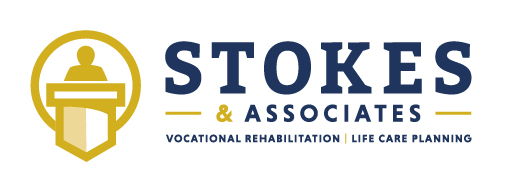Vocational Analysis Testing - Interest Inventories
When performing a vocational analysis, the vocational expert relies on multiple pieces of data to formulate vocational opinions. In addition to obtaining a detailed medical and work history, it is important to consider the evaluee’s preferences for work, especially when alternative employment is necessary due to permanent physical restrictions. To measure preferences, vocational experts may rely on vocational testing, which typically includes interest inventories. Most interest inventories are based on John L. Holland’s theory that vocational and career choices are linked to the persons’ personality type, which influences interests.
Holland identifies six interest/personality areas:
Realistic - Realistic personality types prefer to work with things and are considered doers versus talkers or thinkers. Realistic persons tend to be competitive, assertive, independent, and practical.
Investigative - Investigative personality types prefer working with data, are considered thinkers, and tend to be intellectual, analytical, and observational.
Artistic - Artistic personality types like to work with things and ideas and are considered creators. Artistic persons are typically sensitive, inventive, creative, and emotional.
Social - Social personality types prefer to work with people and are considered helpers. They usually seek out relationships, are humanistic, responsible, and supportive.
Enterprising - Enterprising personality types are considered persuaders and like to work with people and data. For these individuals, the value is usually placed on money, reputation, and power.
Conventional - Conventional personality types prefer to work with data and are considered organizers. Conventional persons tend to be quiet, responsible, and well-organized.
The results of the interest inventories allow the vocational experts, not only to have insight into what type of career the evaluee would be interested in pursuing but also allows the expert to make inferences about the person’s personality features. These personality features can provide the vocational expert with information about how the person might approach the job search or present in an interview. Ultimately, interest inventories can assist in providing useful information related to a person’s vocational outlook.
To find out more about our methods or to discuss a potential case assignment, we offer complimentary consultations concerning "hypothetical matters."
To strategize with one of our vocational experts or life care plan experts at Stokes & Associates please call David Barrett at 504-454-5009, visit our website, www.stokes-associates.com or email dbarrett@stokes-associates.com.
Larry S. Stokes, Ph.D.
Aaron Wolfson, Ph.D.
Lacy Sapp, MHS, CRC, LPC, LRC, CLCP
Todd Capielano, M.Ed., LRC, CRC, LPC, CLCP
David Barrett – Client Development – Vocational Rehab Experts and Life Care Plan Experts
